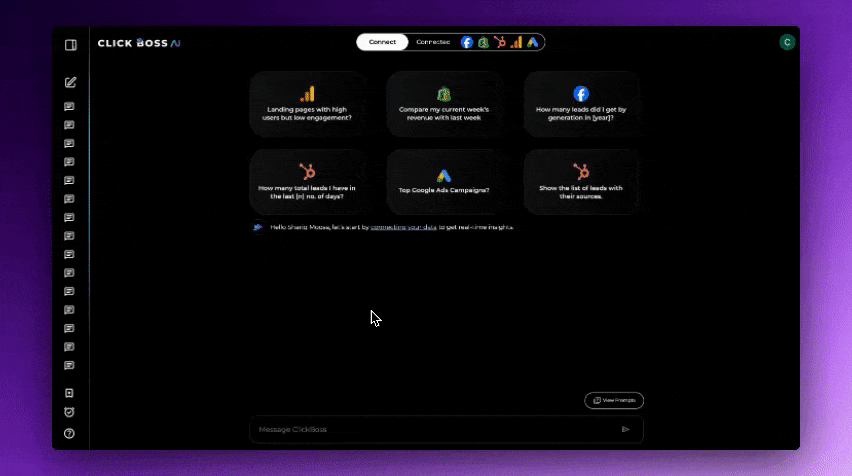E-commerce is more competitive than ever, with businesses striving to deliver better experiences, increase conversions, and boost customer loyalty. The secret to staying ahead lies in your ability to understand and act on your data. This is where business analytics becomes a game changer.
Business analytics provides the tools and techniques needed to turn raw data into actionable insights. By analyzing sales trends, customer behavior, and marketing performance, e-commerce brands can make smarter decisions and unlock growth opportunities. Let’s explore how business analytics plays a critical role in driving e-commerce success.
What is Business Analytics?
Business analytics is the process of analyzing data to understand patterns, predict outcomes, and make data-driven decisions. For e-commerce, this involves looking at metrics like website traffic, customer acquisition costs, average order value, and cart abandonment rates.
The goal is to move beyond basic reporting and start using your data to optimize strategies, forecast trends, and improve operations.
Why Business Analytics is Essential for E-commerce
- Understanding Customer Behavior
Business analytics helps you uncover how customers interact with your store. You can track their browsing habits, identify popular products, and analyze what drives them to purchase or abandon their cart. - Optimizing Marketing Strategies
With analytics, you can measure the effectiveness of your campaigns and understand which channels deliver the best ROI. This allows you to allocate your budget more effectively and maximize your marketing impact. - Improving Inventory Management
Analytics tools can forecast demand based on historical data, helping you avoid stockouts or overstocking. This keeps your operations efficient and your customers satisfied. - Enhancing the Customer Experience
By identifying pain points in the customer journey, such as slow-loading pages or complicated checkout processes, analytics empowers you to make improvements that boost satisfaction and retention. - Predicting Trends
Using predictive analytics, you can anticipate future customer needs, seasonal trends, or shifts in market demand. This allows you to stay ahead of competitors and adapt proactively.
How Business Analytics Supports Growth
- Personalized Marketing. By segmenting your audience based on behavior or demographics, you can deliver tailored campaigns that resonate with specific customer groups.
- Faster Decision Making. Real-time analytics provides up-to-date insights, enabling you to act quickly on opportunities or address challenges.
- Revenue Optimization. By analyzing pricing strategies, cross-selling opportunities, and customer lifetime value, you can find ways to increase revenue without overspending.
Challenges Without Business Analytics
E-commerce businesses that don’t leverage analytics often face:
- Missed Opportunities. Without insights, it’s hard to identify growth opportunities or areas for improvement.
- Inefficient Spending. Marketing budgets may be wasted on ineffective campaigns.
- Poor Customer Retention. Without understanding why customers leave, it’s difficult to improve loyalty.
- Limited Scalability. As your store grows, managing operations without analytics becomes increasingly complex.
How to Get Started with Business Analytics
- Set Clear Goals
Define what you want to achieve with analytics. Whether it’s increasing sales, improving customer retention, or reducing costs, having clear objectives will guide your strategy. - Choose the Right Tools
Look for analytics platforms that integrate with your e-commerce store, like Shopify Analytics, Google Analytics GA4, or specialized tools like ClickBoss AI. - Centralize Your Data
Combine data from all your platforms into one system to create a comprehensive view of your business. - Focus on Key Metrics
Start with essential metrics like conversion rates, average order value, and customer lifetime value before diving into more advanced analytics. - Leverage Predictive Analytics
Use tools that provide forecasting and trend analysis to plan for the future more effectively.
How ClickBoss AI Elevates Business Analytics
ClickBoss AI simplifies the process of using business analytics for e-commerce growth. It centralizes data from platforms like Shopify Analytics and Google Analytics GA4, giving you a single source of truth for all your metrics.
With ClickBoss AI, you can:
- Get real-time insights to make faster, smarter decisions
- Analyze marketing performance and optimize ad spend
- Identify customer segments for personalized campaigns
- Predict future trends and opportunities with advanced analytics
ClickBoss AI not only provides the data but also helps you understand how to use it effectively, empowering you to focus on growing your business.
Building a Data-Driven Future
E-commerce growth isn’t just about selling more. It’s about understanding your customers, optimizing your operations, and making informed decisions. Business analytics provides the foundation for achieving these goals.
By leveraging tools like ClickBoss AI, you can take the guesswork out of decision making and confidently scale your store. With clear insights and actionable strategies, you’ll be well-positioned to thrive in today’s competitive market. The future of e-commerce belongs to data-driven businesses. Are you ready to lead the way?



